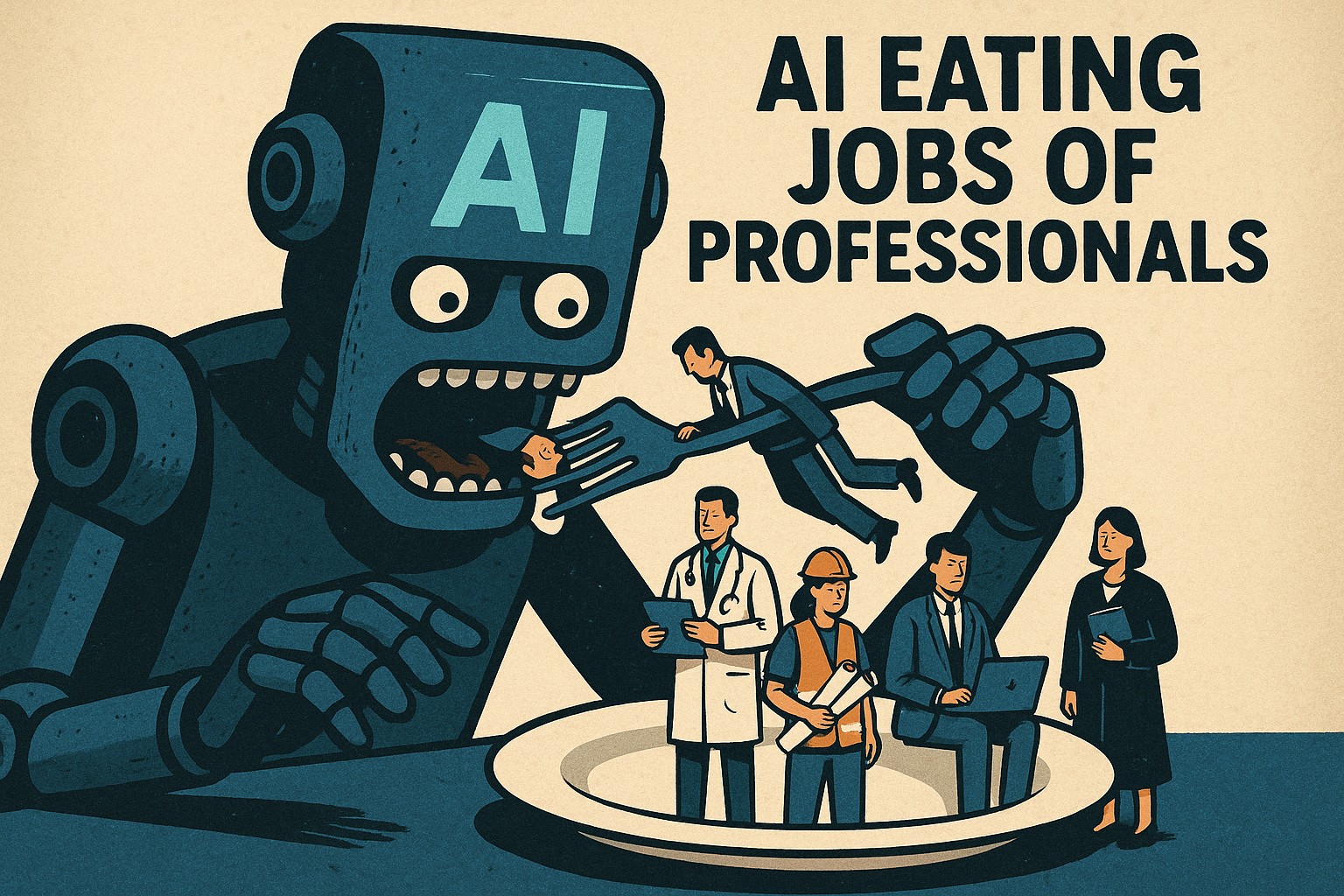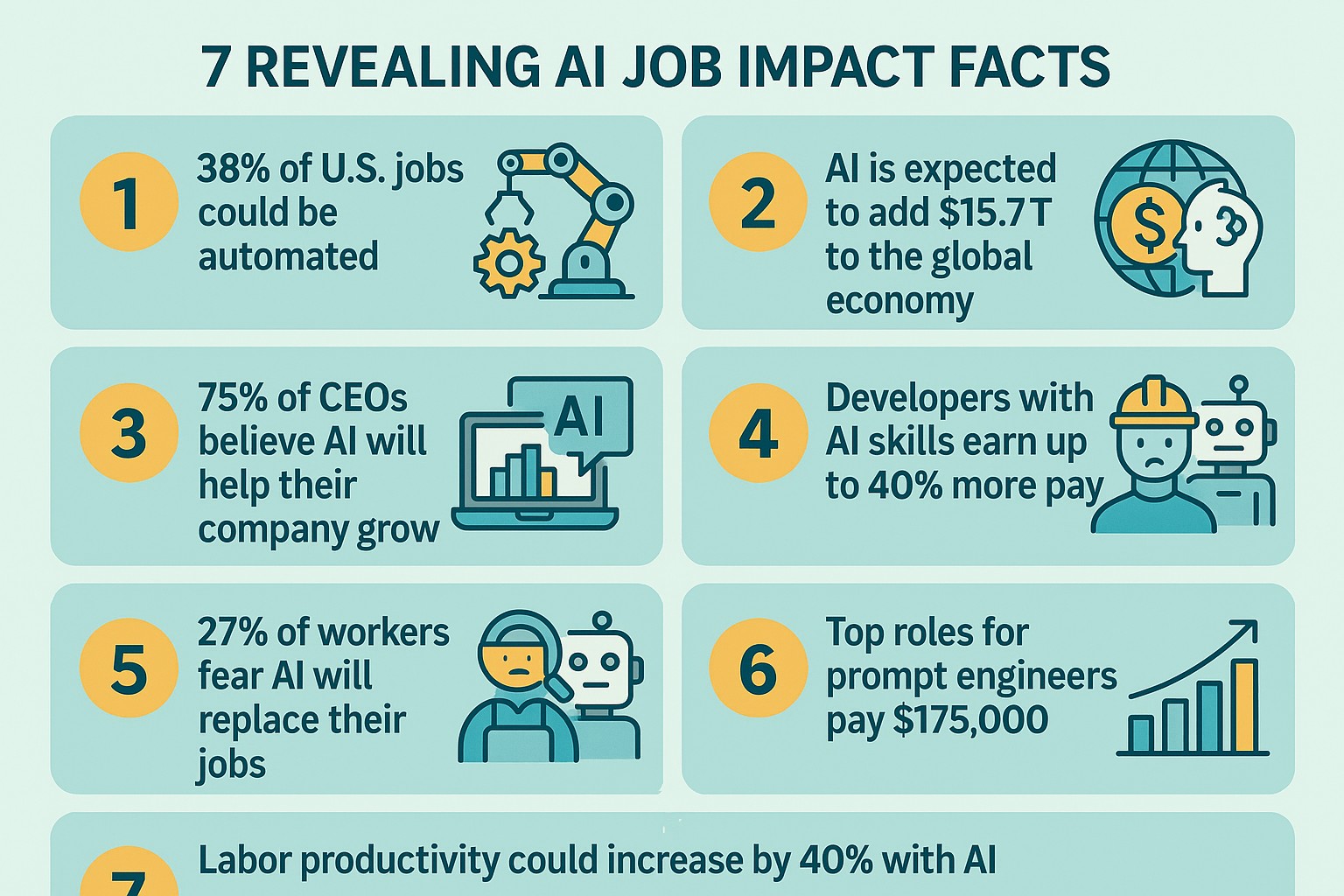AI job impact is no longer a future possibility—it’s happening now. As companies restructure, lay off workers, and retool processes, artificial intelligence is playing a much bigger role than most people realize. According to The Economic Times, many routine job eliminations in 2025 are driven not by poor performance or cost issues. This quiet shift often catches employees off guard, making it harder for them to prepare or transition. Awareness and anticipation are now essential skills for anyone navigating the evolving job market.
These shifts are often labeled “cost optimization” or “organizational restructuring,” which sounds innocuous. But make no mistake: the AI job impact is fundamentally altering how work gets done across industries.
AI job impact: Routine roles face silent extinction
The AI job impact is most visible in fields where tasks are repetitive and rules-based. Roles like data entry, payroll, inventory tracking, and even customer support are being phased out in favor of machine learning systems and chatbots. Companies don’t announce these changes with AI fanfare—they simply cut positions under a restructuring label, which hides the real driver from both the public and the affected workers.
A revealing piece by The Economic Times explains how businesses reduce costs quietly by letting automation tools take over and slowly dissolve human-centric teams in the background.
AI job impact: Are job fears exaggerated?
While layoffs due to AI are rising, not everyone sees the trend as devastating. A report by Naukri.com, summarized in the Indian Express, shows that many fears surrounding the AI job impact might be overstated. Most employers aren’t replacing workers wholesale—but rather reassigning responsibilities, upskilling teams, and complementing human efforts with AI tools.
According to this study, sectors like education, healthcare, and the creative industries remain largely safe from AI disruption for now. Human-centric skills—like empathy, leadership, critical thinking, and storytelling—can’t yet be replicated by machines.
AI job impact: 7 key facts every professional must know
The following are 7 critical facts highlighting the scale and nature of the AI job impact in 2025:
-
Routine jobs are most at risk – Admin, finance, and clerical roles face immediate disruption.
-
Restructuring is AI-driven – Companies disguise automation-led layoffs as cost restructuring to avoid backlash.
-
New jobs are emerging – AI engineers, data scientists, and AI ethics experts are in high demand.
-
Skill gaps limit transition – Many displaced workers lack the digital skills to pivot easily.
-
Creative fields remain resilient – Jobs in writing, design, and arts still depend on human nuance.
-
Upskilling is urgent – Platforms like Coursera and LinkedIn Learning offer AI-focused programs.
-
Governments are reacting – Reskilling funds and UBI pilots are being tested globally to soften the transition.
AI job impact: What companies and employees should do now
The current AI job impact wave should act as a wake-up call. For employees, proactive upskilling is non-negotiable. Focus areas should include:
-
AI literacy and prompt engineering
-
Data interpretation and visualization
-
Digital communication and collaboration tools
-
Emotional intelligence and leadership
Employers must respond by offering transparent communication and internal training programs to help current workers stay relevant. Google’s AI Certificate program is a good model of how businesses can enable upskilling at scale.
AI job impact: The bigger picture
While the AI job impact is unsettling, it’s not entirely negative. As automation handles tasks, humans can be freed for more meaningful, strategic work—if given the right tools and training. The key lies in preparing the workforce through continuous learning and government-industry collaboration.
A future where humans and machines work side-by-side is within reach, but only if today’s professionals adapt. The age of AI is here, and your ability to thrive depends on whether you evolve with it.


